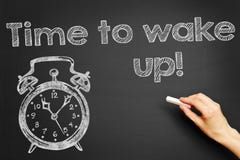His recent post on Judgements did strike a similar note in my mind and reminds me of an incident which happened on the first week of my post graduation class. Being a shy and relatively slow starter when it comes to blending into a new environment, I was not really seen as someone worth hanging around with. By the end of the week, I was officially declared
( and judged to be ) an introvert by a majority of the class and especially ignored by the women folk (to my dismay.)
However things turned out to be completely the opposite by the end of the first semester - when I was selected to manage a serious portfolio in the rural camp team; when I was elected the President of the training cell; when the HOD had to request me to bring students under control and as an icing on the cake became the Placement Coordinator for the batch! I had managed to garner majority support of my classmates and my overall ratings had gone up substantially as the most eligible bachelor ( by the same women who had branded me as Introvert and Uninteresting!).
I am not writing this to brag about my qualities or my great stint at college - I just wanted to reaffirm Raj's views that quick judgments never do any good to anyone. For anything or anyone to be judged, we need to give it some time - what Raj mentions as "watching the patterns" - and these patterns are nothing but a series of actions that either support or defy our judgments.
Such early judgments affects us all - especially as HR Pros.
Consider an Interview where a candidate comes in late by a few minutes and the initial judgement by the interviewer is on the negative side. However, there would have been some valid and totally substantial reasons for such action by the candidate. The point is not whether the candidate should be given the chance to explain his act but to ensure that this particular action alone should not lead the interviewer to reach a conclusion ( based on his Judgement) about his/her credibility. ( Remember Recency Effect?)
Kudos to Raj for bringing in such a topic to the table. We are in an age where bias and judgments fill our offices and homes - and these can change our relationship with colleagues and family members forever.
Click on the link to read "Judgments often prove wrong - don't they?"
I also found some interesting feeds on making Judgement Calls, Check these out...
Making Judgement Calls - By The Harvard Business Review
Making Judgement Calls - By BNET



